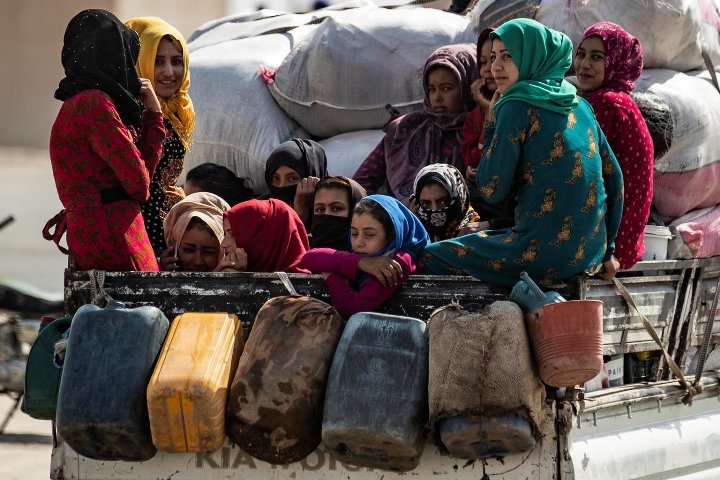Ongoing disruptions to Alouk water station in northeast Syria must stop: UNICEF
Since November 2019, the Alouk water station, which directly provides clean drinking water to nearly 460,000 people, has been disrupted at least 24 times.

- Country:
- Syrian Arab Republic
“The persistent interruptions of essential services to civilians in Syria are increasing. Ongoing disruptions to the critical Alouk water station in northeast Syria must stop.
“Since November 2019, the Alouk water station, which directly provides clean drinking water to nearly 460,000 people, has been disrupted at least 24 times. Since 23 June, the station has stopped operating due to a number of factors including reduced access for technicians to carry out maintenance and repairs and insufficient electricity, effectively and immediately limiting access to water across Al-Hasakeh governorate. In total, up to 1 million people are impacted, including many of the most vulnerable displaced families living in camps and informal settlements.
“Reports indicate that families are resorting to potentially unsafe sources of water or limiting consumption, which may contribute to growth in a range of potentially fatal water-borne diseases, and further undermine the already fragile public health. As COVID-19 cases remain an ongoing threat, and with limited availability of vaccines, adequate and uninterrupted access to safe water, sanitation and hygiene is a critical first line of defence to stem transmission of the pandemic.
“Since Alouk water station was first damaged in hostilities in late 2019, humanitarian partners have delivered - on a daily basis - millions of litres of emergency water to families in the affected area, in addition to other measures, like the rehabilitation of the nearby Al-Himmeh water station, and installation of reverse osmosis pumps in Al-Hasakeh city. However, Alouk water station continues to be the only viable source to fully meet the urgent water needs of people in the area.
“We have also received reports that other essential services have been impacted in the north-east in recent months, including electricity to Ras al-Ain, Al-Hasakeh, Ar-Raqqa and Deir-Ez-Zor cities, among other locations. Cuts in electricity also impact the operation of critical civilian infrastructure, including hospitals and health facilities.
“We call for the resumption of water and electricity services and the protection of civilians’ access to water, and sanitation. We remind all parties that water stations are civilian infrastructure that should be protected at all times. We continue to urge all parties to immediately provide safe passage and regular and unimpeded access for technical and humanitarian personnel so that the Alouk water station can operate without further interruption.
- READ MORE ON:
- Syria
- Alouk water station
- UNICEF










